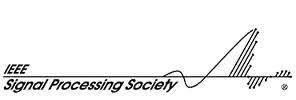 |
 |
 |
 |
 |

Deconvolution is one of the most common image-reconstruction tasks that arise in 3D fluorescence microscopy. The aim of this challenge is to benchmark existing deconvolution algorithms and to stimulate the community to look for novel, global and practical approaches to this problem.
The challenge will be divided into two stages: a training phase and a competition (testing) phase. It will primarily be based on realistic-looking synthetic data sets representing various sub-cellular structures. In addition it will rely on a number of common and advanced performance metrics to objectively assess the quality of the results.
The forward model that we adopt in the deconvolution challenge can be mathematically described as $$ \mathbf{y}=Q\left(P\left(\mathbf{A}\mathbf{x}+\mathbf{b}\right)+\mathbf{w}\right), $$ where \(\mathbf{A}\in\mathrm{R}^{M\times N}\) is a matrix that models the effect of the point spread function (psf) of the microscope, \(P\) is an operation that describes the Poisson noise, \(\mathbf{y}\in\mathrm{R}^M,\mathbf{x}\in\mathrm{R}^N\) are the vectorized versions of the observed and ground-truth image stacks, respectively, \(\mathbf{b}\in\mathrm{R}^M\) is a constant vector which models the image background and \(\mathbf{w}\in\mathrm{R}^M\) represents additive i.i.d Gaussian noise. Finally, \(Q\) is a function which quantizes the final output.
To produce the synthetic degraded measurements according to the above
forward model we provide the function ForwardModel3D.m. Below there is
a description about the input and output arguments of this script.
The registered participants will receive soon a personalized upload link.
January 6, 2014The evaluation stage of the second edition of the challenge has started.
November 6, 2013The official stage of the challenge will last around 2 months.
November/December, 2013The training stage of the second edition of the challenge has started. Follow this link to register and receive e-mail updates.
July 17, 2013